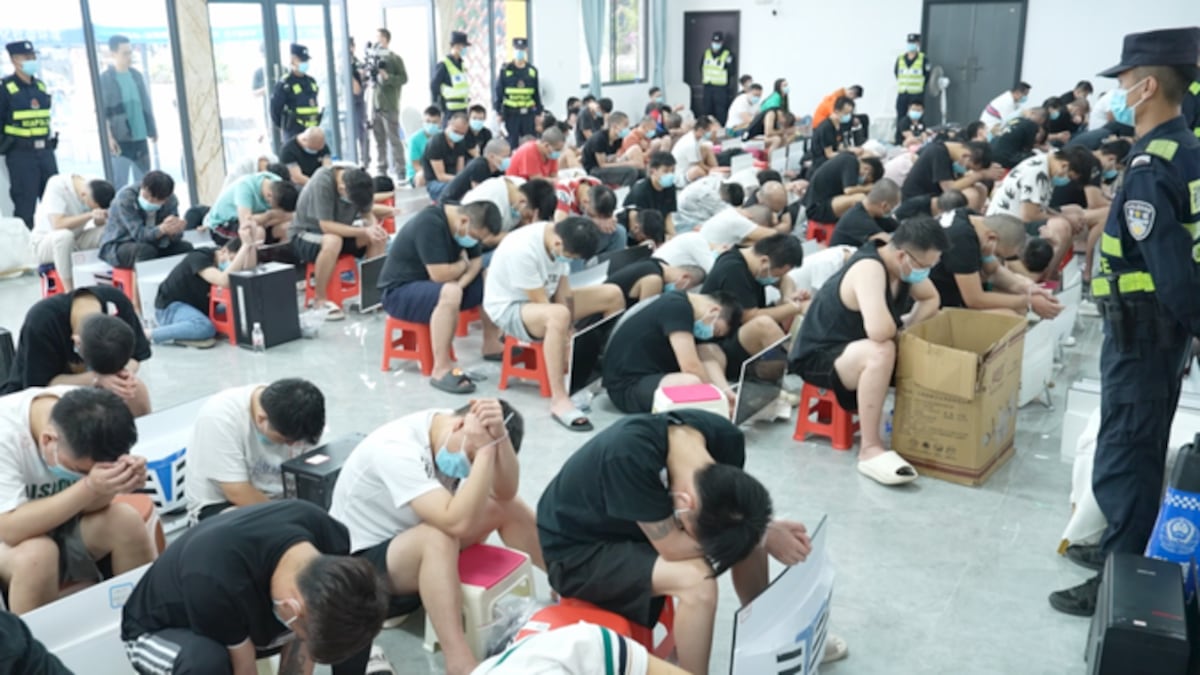- Hundreds of thousands of people are being forced into 'coerced digital delinquency'in Southeast Asia, a United Nations investigation reports.
- The explosion of romance-investment scams using cryptocurrencies is prompting human rights abuses, experts say.
- Crime compounds house thousands in Cambodia, Myanmar, and Laos.
Pig butchering is a crypto-based scam that targets users seeking romantic relationships. But there is another set of victims being swept up in these crimes — the legions of workers doing the fleecing.
Hundreds of thousands of people have been “forcibly engaged in online criminality” at the hands of organised crime groups based in compounds in Southeast Asia, according to a report published in August by the Office of the United Nations High Commissioner for Human Rights.
Psychological brutality
“One of the main ones that we hear about is the so-called ‘pig butchering scheme,’” stated Pia Oberoi, Senior Advisor on Migration and Human Rights at OHCHR, the author of the report. “The targets... are approached in a romance kind of scam and basically scammed out of their money, thinking that they are speaking to somebody who is interested to be romantically involved with them.”
Pig butchering, which typically uses crypto to rip off victims, has become known for its psychological brutality. Scammers pose as potential romantic partners and gain their victims’ trust over a period of months before introducing them to a seemingly third-party crypto investment site, which is also run by the scammers. Then they drain their targets’ savings.
The gangs behind the crimes often use casinos as “trojan horses” to establish semi-autonomous compounds reliant on coerced labour, says the UN.
NOW READ RELATED STORY: From cute selfies to death threats — here’s how a fraud victim turned crusader is fighting the cruelest of crypto crimes
The stories from inside these facilities are harrowing. Victims — usually male and often educated and multilingual — are offered a high paying job in Southeast Asia.
The offer may come through a friend or acquaintance, or even from local job boards. They’re promised a good salary, but on arriving in the country it becomes clear quite quickly that things are not as they seem. Passports are confiscated and they are instead sent to live and work in secure compounds.
The UN called the practice “coerced digital delinquency” in its August report.
Serious violations
Oberoi’s research suggests at least 120,000 people across Myanmar are held in scam compounds or situations where they are forced to carry out scams, and a further 100,000 in Cambodia. Laos, the Philippines and Thailand are also identified as countries of “destination or transit” for tens of thousands of people.
“Victims face a range of serious violations and abuses, including threats to their safety and security,” said UN Human Rights Office spokesperson Jeremy Laurence in August. “And many have been subjected to torture and cruel, inhuman and degrading treatment or punishment, arbitrary detention, sexual violence, forced labour, and other human rights abuses.”
‘Many have been subjected to torture and cruel, inhuman and degrading treatment or punishment, arbitrary detention, sexual violence, forced labour, and other human rights abuses.’
— Jeremy Laurence, United Nations
Yet for those who make it home, there’s also little support. In May 2022, Malaysian citizen Bilce Tan thought he was headed to Cambodia for a legitimate job in a call centre, according to his account published by the Global Anti-Scam Organisation (GASO), a US-registered group that serves as a clearing house for information on pig butchering cases and helps victims.
NOW READ: How crypto scammers are embracing new AI technology
Instead, he found himself imprisoned in the Victory Paradise Resort in Sihanoukville, a Cambodian city more commonly associated with its booming casino industry than with human trafficking. Like thousands of others ensnared in similar traps, he was sold the illusion of opportunity.
Bilce Tan’s ordeal only deepened upon his return to Malaysia. After sharing his experiences publicly, he was contacted by a member of a Malaysian political party instructing him to retract his story. The company he had initially interviewed with sued him for defamation and accused him of owing them money.
NOW READ: Bitcoin casinos and burger joints selling Tether — how Hong Kong fell back in love with crypto
Victim-blaming is distressingly common, says GASO, and support systems for these victims remain woefully inadequate.
“People that have been trafficked into these scam compounds suffer not just physical abuse and mental abuse, but financial ruin in many cases because they have taken on debts and then to release themselves from these scam compounds to take on more debt,” said Oberoi in her report.
“But they also take on stigma and shame, particularly, as we said, because of the profile of these people. They’re not uneducated.”
Callan Quinn, DL News’ Hong Kong correspondent, covers the crypto industry in Asia. Have a tip? Contact the author at callan@dlnews.com.





